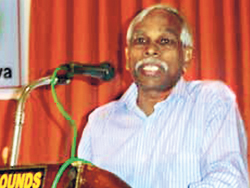
South Asian tea workers call for International Tea dayA group of workers, small growers and trade unionists last month said they were launching a campaign urging that governments, the UN, ILO and other international agencies declare December 15 as the International Tea Day. The group said, at the end of the two day international tea convention held in Badulla that such recognition was necessary as the tea sector, among the highest employment providers, sustains millions of people as workers (a majority of them women) and small growers in the tea producing countries, and that there is disproportionate value accrual at the highest end of the value chain; it is never passed onto the consumers, producers or workers.
The 3rd International Tea Day (ITD) commemorations took place in Badulla on December 14-15, organized by the Kandy-based Institute of Social Development (ISD) in Sri Lanka with the collaboration of the Plantation Sector Social Forum (PSSF) and PlantationSector Trade Unions of Sri Lanka. It was held at Hotel Sanastar, Badulla with the Chief Minister of the Uva Provincial Council, Gamini Wijeyamuni Soysa gracing the occasion as the chief guest. Indian trade union leader Ashim Roy, Secretary General of the New Trade Union Initiative in India and senior Sri Lankan plantation trade unionists, small tea growers, researchers, and members of civil society organizations dealing with the tea plantation sector participated at the conference. The main aim of the conference was to re-emphasise the proposed International Commodity Agreement for Tea. Four sessions were included in the conference and the following areas were discussed in the conference: leasing, sub-leasing and contract labour; Uva plantation issues; plantation migrant labour issues; 10-year plantation plan; and crisis in the wage structure and the living wage. Roy addressed the gathering on international tea crisis and solidarity The Uva Declaration was adopted at the end of the conference. Here are excerpts:
|
|| Front
Page | News | Editorial | Columns | Sports | Plus | Financial
Times | International | Mirror | TV
Times | Funday
Times | Kandy
Times || |
| |
Reproduction of articles permitted when used without any alterations to contents and the source. |
© Copyright
2008 | Wijeya
Newspapers Ltd.Colombo. Sri Lanka. All Rights Reserved. |
